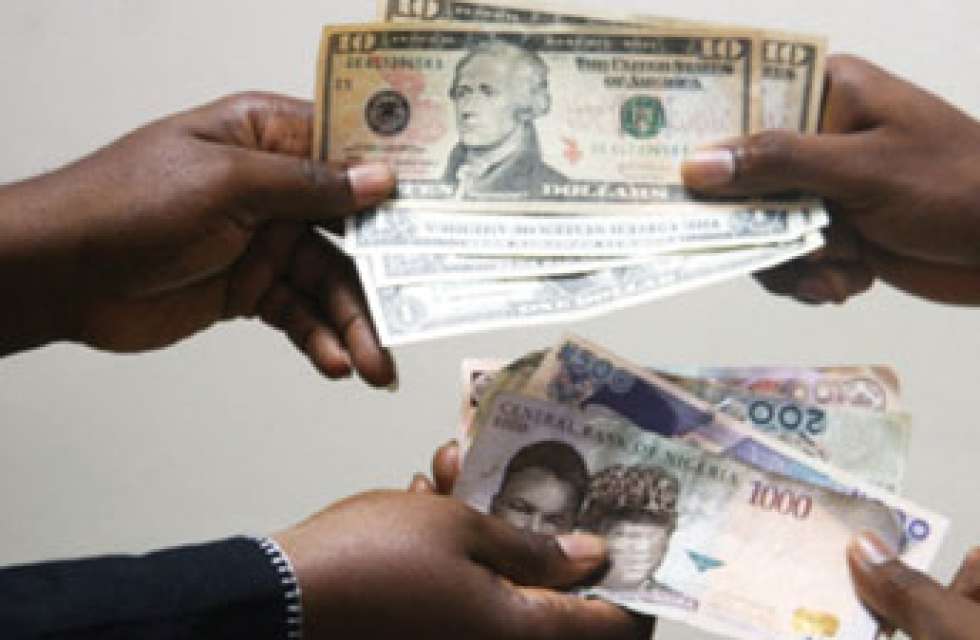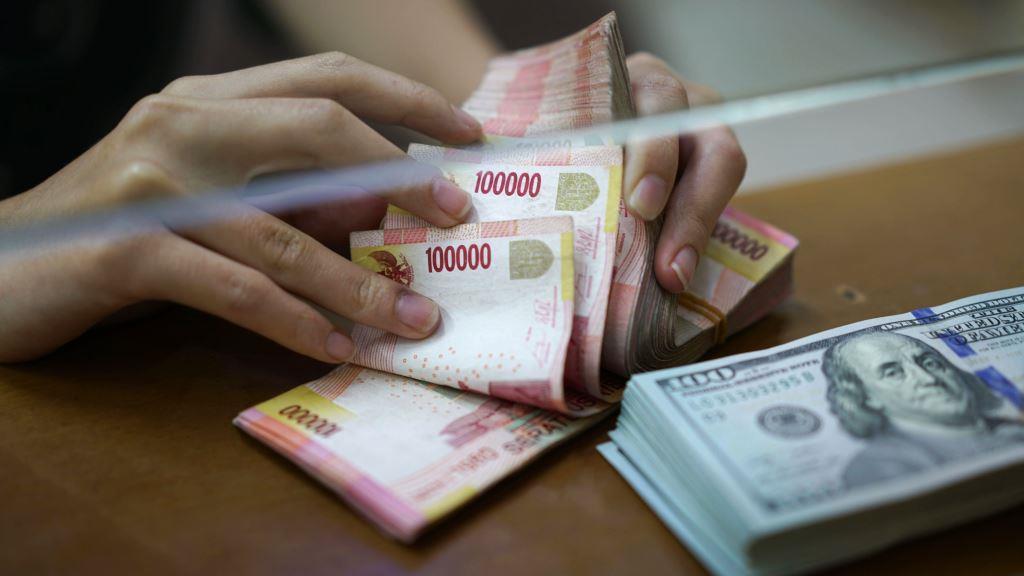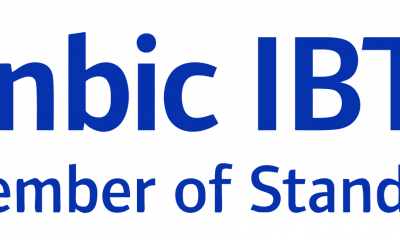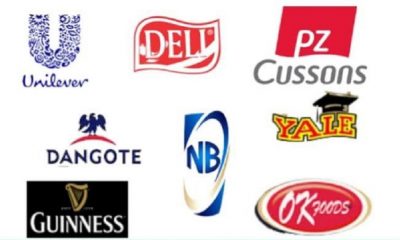Economy
The Currency Risk for Nigerian Businesses is Very Real – What Are the Best Ways to Handle It?

There is always some risk even in the most surefire business ideas – after all, nothing ventured, nothing gained right?
But businesses that operate by using different currencies for buying and selling, face uniquely pertinent risks from changes in the volatile currency markets – especially when dealing with a marginal currency like the Nigerian Naira.
In this post, we will take a close look at just what these risks are and how Nigerian businesses can best guard against them.
Despite experiencing some hardships since the oil crash of 2014, Nigeria is Africa’s largest economy by some distance and in many ways, it could be viewed as an African success story. The Lagos business districts are growing fast as young, entrepreneurial Nigerians form startups at a truly impressive rate, and ever more international businesses are now taking note.
As Nigeria begins to look outwardly across the continent and the globe, more and more domestic businesses find themselves transacting internationally either in buying or selling goods, or ordering or providing services.
Whilst doing business with the world offers huge opportunities, the challenges that come with transacting across borders in different currencies can be very intimidating for any business that relies on a currency as peripheral, and volatile as the Naira.
The Certainty of Change
Indeed, businesses that deal with clients or suppliers in other countries generally need the currency exchange rates to be very stable – fluctuations affect a transaction’s cost-effectiveness and can make all the difference between profit and loss.
For example, a Nigerian fashion house might buy its fabric from Senegal and then sell its finished goods domestically. If the Naira drops against the CEFA though, then the cost of importing fabrics will go up.
Whilst the firm can try to pass the difference and increase in costs onto the customers by charging more for the end product, many customers are more likely to find the goods to be overpriced. This can be disastrous for companies who are locked into contracts or simply rely heavily on a particular supplier as they can be pushed into running their once profitable business at a loss.
Businesses in the western world also face this dilemma too but currencies like the USD, EUR and GBP are generally pretty stable. As such whilst fluctuations can certainly hurt business, they are more often than not, possible to absorb.
However the Nigerian Naira has endured something of a torrid ride over the last 5 years; in 2017, $1 USD = N315 whereas the rate is currently $1 = N414! Trying to establish a medium to long term strategy for an international basis is very difficult when that business is built on a shaky foundation such as the Nigerian Naira.
The situation gets even more complex. Once again western business enjoys an advantage in the business foreign exchange field – there is a whole range of ways in which western businesses can guard against fluctuations in the currency markets that are unavailable to Nigerian business.
In particular, UK businesses enjoy a wide selection of Foreign Exchange possibilities on account of its gold-standard credit rating, libertarian financial services climate and highly trusted regulatory framework.
On the other hand, a lot of these ways are simply not available in Nigeria as a lot of the requisite service providers are either unwilling or unable to offer business in the country.
This is mostly owing to perceived currency and political stability issues mixed with an unfortunate reputation of Nigeria as an incubator of financial crime. Whilst Nigeria is not currently suffering from any US-imposed financial sanctions, it is feared that a change of regime could lead to this happening.
How to Hedge FX as an SME
There are 3 very common methods of currency hedging – ways in which businesses can indemnify themselves against changes in the currency market.
- Forward Contracts
Forward contracts are when a business agrees to buy a set amount of a given currency, over a specified time, at an agreed, settled rate. For example, a Nigerian business may anticipate that it will need to buy $10,000 over the coming year to pay suppliers. Rather than buy it incrementally as and when it is needed, a forward contract would allow them to “lock-in” the current exchange rate allowing them to budget the N4,111,600.00 they will need.
Forward contracts serve to protect a business from a drop in the value of their currency, but on the other hand, if the Naira was to increase against the dollar then the business would be losing out and paying more for the dollars. Forward contracts can be a bit of a gamble but they do provide certainty.
Problematically though, most of the companies dealing in forward contracts are not offering their services to clients in Nigeria. However, in September 2021, Nigeria did agree to a record $18 billion in OTC forward contracts so the outlook is at least improving.
- Currency Brokers & International Payment Providers
If a business is buying large amounts of a given currency, then a currency broker may be able to help them get a better exchange rate than the one generally available on the market. The issue Nigerian businesses face here though is simply that many currency brokers have a low appetite for buying Naira if they will deal with Nigerian business at all.
When making sizable international business payments (such as for an invoice) then an international transfer service provider can help a business save fees on international bank payments and may also be able to help them ensure a better rate. Unfortunately, though, international business payment service providers don’t accept any Nigerian business.
- Multi-Currency Accounts
Another very useful way for FX hedging is to open a multi-currency account. Multi-currency accounts allow a business to hold account balances in different currencies via sub-accounts or ‘pots’ in addition to their main balance. A Nigerian business could hold its main balance in Naira but then have a USD pot and a CEFA pot. The advantage is that they have foreign currency ready to use and are once again protected by the ebb and flows of the Naira.
Multi-currency accounts are very useful for companies that regularly deal in a small number of particular currencies.
Once again though, a lot of the international or borderless banks that offer multi-currency accounts don’t allow balances to be held in Naira and relatively few Nigerian banks allow multi-currency balances at all.
So, as we can see, all across the world, small businesses have dedicated service providers who are able to assist with FX management and payment. However, in Nigeria few, if any of these options are available.
How To DIY Hedge Against Currency Fluctuations
In the absence of a supportive financial service sector, Nigerian business owners have to utilise their talent for resourcefulness and look for ‘DIY’ hacks for currency hedging.
- Buy Cash Currency
Without access to either brokers or multi-currency accounts, Nigerian businesses are largely unable to hold balances in foreign currencies. They can, however, still hold cash in whatever currency they can get their hands on. Currencies like the USD, Euro and GBP are available worldwide and the CEFA can be obtained in many Nigerian money exchanges or by hopping over the border.
Therefore, when the exchange rate moves to a favourable position (i.e. the Naira becomes strong against the USD), a Nigerian business person can simply take advantage, buy USD cash and lock it securely away until it is needed. They can use it to make international payments via services such as Western Union or Ria or can simply sell it back when the rate changes in the other direction.
- Borderless Bank Accounts
There are an increasing number of fintech startups offering “borderless bank accounts” to residents of an increasing number of countries. These offer Nigerians an opportunity to get an international bank account in a foreign currency via the backdoor. However, few of them permit Nigerian citizens to hold accounts. Even Wise has stopped servicing Nigerian customers at least for now.
- Paypal
Whilst its fees and exchange rates are not the best, Paypal does allow Nigerians to hold accounts and will also permit them to hold USD balances if they receive funds in USD.
- Cryptocurrency
The cryptocurrency market is something of a wild frontier and as such, many platforms will accept customers from all over the world including Nigeria. Therefore a business could buy a given cryptocurrency and then hold it in their crypto-exchange until it was needed.
Whilst critics may point out that most cryptocurrencies are far more volatile than even the Naira, there are stable coins like the USDT which tracks the USD rate 1 for 1. Therefore, in buying USDT, a Nigerian business can almost hold a USD balance which can be converted back to fiat when they need to use it.
In Summary
From Lagos to London, international trade is both exciting and complex. However, Nigeria and the developing world, in general, do face some extra difficulties.
Still, whilst these difficulties can be restrictive they can be overcome or at least countenanced with some determination and ingenuity – and both of these are traits that Nigeria holds in abundance.
Economy
Customs Street Opens Week Bullish After 0.66% Surge

By Dipo Olowookere
The Nigerian Exchange (NGX) Limited ended the first trading session of the week on a positive note after it chalked up 0.66 per cent on Monday.
The gains recorded yesterday were boosted by the 3.42 per cent rise by the insurance sector, the 1.44 per cent surge by the banking index, and the 1.30 per cent leap by the industrial goods counter. They offset the 0.20 per cent loss posted by the energy sector and a 0.11 per cent decline suffered by the consumer goods industry.
Consequently, the All-Share Index (ASI) closed higher by 1,273.78 points to 196,263.55 points from 194,989.77 points, and the market capitalisation appreciated by N805 billion to N125.969 trillion from N125.164 trillion.
Business Post observed that investor sentiment turned bearish during the session after Customs Street ended with 34 price losers and 33 price gainers, representing a negative market breadth index.
Fortis Global Insurance gained 10.00 per cent to trade at 66 Kobo, Okomu Oil expanded by 10.00 per cent to N1,605.60, Fidson rose by 9.90 per cent to N95.50, NPF Microfinance Bank rose by 9.89 per cent to N6.89, and Infinity Trust Mortgage Bank jumped 9.84 per cent to N17.30.
On the flip side, The Initiates weakened by 10.00 per cent to N17.55, Deap Capital deflated by 9.97 per cent to N6.86, LivingTrust Mortgage Bank went down by 9.92 per cent to N5.90, Multiverse lost 9.92 per cent to close at N22.70 per cent, and Ellah Lakes shrank by 9.77 per cent to N11.55.
Yesterday, market participants traded 1.3 billion shares worth N31.5 billion in 95,091 compared with the 820.5 million shares valued at N28.3 billion in 63,507 deals last Friday, indicating an increase in the trading volume, value, and number of deals by 58.44 per cent, 11.31 per cent, and 49.73 per cent apiece.
Japaul ended the session as the busiest stock after selling 474.0 million units worth N2.0 billion, Chams traded 51.5 million units for N221.3 million, Jaiz Bank exchanged 48.3 million units for N566.9 million, Secure Electronic Technology transacted 46.3 million units worth N68.8 million, and Mutual Benefits sold 42.5 million units valued at N242.5 million.
Economy
Naira Further Crashes to N1,349/$1 at Official Market

By Adedapo Adesanya
The first trading day in the currency market in Nigeria ended bearish for the Naira as its value further weakened against the US Dollar in the Nigerian Autonomous Foreign Exchange Market (NAFEX) on Monday by N2.92 or 0.22 per cent to N1,349.24/$1 from the N1,346.32/$1 it was traded last Friday.
Also in the spot market, the Nigerian currency depreciated against the Pound Sterling by N6.62 during the trading day to close at N1,821.87/£1 versus the preceding session’s N1,815.25/£1, and lost N6.80 on the Euro to settle at N1,591.42/€1, in contrast to the previous rate of N1,584.62/€1.
At the GTBank forex desk, the Nigerian Naira crashed against the greenback yesterday by N1 to quote at N1,357/$1 versus the preceding session’s closing value of N1,356/$1, but in the black market, the Naira appreciated by N5 to close at N1,365/$1 compared with the preceding trading day’s N1,370/$1.
The Naira slide came amid renewed pressure as weekly inflows declined, as Bureaux De Change (BDC) operators were unable to purchase Dollars from banks two weeks after the Central Bank of Nigeria (CBN) reopened the official FX Market window to them.
It had been expected that BDCs would help to further deflate the parallel market premium, but according to reports, BDC operators had yet to commence FX purchases from commercial banks, two weeks after the apex bank said legitimate agents can access up to $150,000 from the banks.
There were no FX inflows from the CBN during the past week, according to a report by the research department of Coronation Merchant Bank.
Meanwhile, Nigeria’s external reserves, which provide the CBN with firepower to support the naira, rose to $48.77 billion as of February 19, 2026.
Meanwhile, the cryptocurrency market was in the red as a broader risk-off shift tied to an emerging “AI scare trade” in equities is weighing on crypto markets.
This is leading traders to sell, while the sharp liquidation events that typically attract dip buyers have seen no such move recently, with Bitcoin (BTC) down by 3.2 per cent to $62,901.86.
Further, Ethereum (ETH) depreciated by 2.5 per cent to $1,821.13, Cardano (ADA) slid 1.9 per cent to $0.2571, Litecoin (LTC) went down by 1.9 per cent to $50.45, Solana (SOL) shrank 1.8 per cent to $76.54, Dogecoin (DOGE) declined by 1.7 per cent to $0.0912, Ripple (XRP) slumped 1.2 per cent to $1.32, and Binance Coin (BNB) lost 0.6 per cent to sell for $589.88, while the US Dollar Tether (USDT) and the US Dollar Coin (USDC) closed flat at $1.00 each.
Economy
Crude Oil Slips Ahead Third Round of US–Iran Nuclear Talks

By Adedapo Adesanya
Crude oil eased on Monday ahead of a third round of nuclear talks between the US and Iran, and amid increased economic uncertainty after the latest US tariff upheaval.
According to data, Brent crude futures lost 27 cents or 0.38 per cent to close at $71.49 a barrel, while US West Texas Intermediate (WTI) crude futures fell 17 cents or 0.26 per cent to per barrel $66.31.
Iran has indicated its preparedness to make concessions on its nuclear programme in return for sanctions lifting and recognition of its right to enrich uranium.
The Iranian government, facing pressure at home with a growing opposition and globally with threats of a US military strike, appears ready for a third round of Omani-mediated talks with American negotiators this week.
According to reports, the Foreign Minister of Oman, Mr Badr Albusaidi, on Sunday said talks would resume on Thursday, February 26, in Geneva “with a positive push to go the extra mile toward finalising the deal” over Iran’s nuclear program.
In separate remarks, the Iranian government suggested talks in the Swiss city on that date. However, there has been no confirmation from the US officials.
The US administration has been pressuring Iran to agree to curtail its nuclear program, which Iran insists is intended for peaceful, civilian purposes, such as electricity generation. The US, along with Israel and others in the West, has accused Iran of intending to build atomic weapons.
US President Donald Trump has dispatched two aircraft carrier strike groups, with dozens of fighter jets and bombers to the region, and other military planes and supporting forces have been spotted flying into air bases in the Middle East.
President Trump said on Saturday that he would raise a temporary tariff from 10 per cent to 15 per cent on US imports from all countries, the maximum allowed under the law.
This came after a US Supreme Court ruling last week struck down key parts of President Trump’s tariff plans, rekindling uncertainty among investors and businesses.
Goldman Sachs lifted its Q4 2026 Brent forecast to $60 and WTI to $56 per barrel, citing lower-than-expected OECD stock levels.
The bank still projects a 2.3 million barrels per day surplus in 2026, assuming no major supply disruptions.
Meanwhile, the Organisation of the Petroleum Exporting Countries and its allies (OPEC+) may resume production increases in 2026 amid limited inventory builds and shifting market dynamics.
-

 Feature/OPED6 years ago
Feature/OPED6 years agoDavos was Different this year
-
Travel/Tourism10 years ago
Lagos Seals Western Lodge Hotel In Ikorodu
-

 Showbiz3 years ago
Showbiz3 years agoEstranged Lover Releases Videos of Empress Njamah Bathing
-

 Banking8 years ago
Banking8 years agoSort Codes of GTBank Branches in Nigeria
-

 Economy3 years ago
Economy3 years agoSubsidy Removal: CNG at N130 Per Litre Cheaper Than Petrol—IPMAN
-

 Banking3 years ago
Banking3 years agoSort Codes of UBA Branches in Nigeria
-

 Banking3 years ago
Banking3 years agoFirst Bank Announces Planned Downtime
-

 Sports3 years ago
Sports3 years agoHighest Paid Nigerian Footballer – How Much Do Nigerian Footballers Earn























